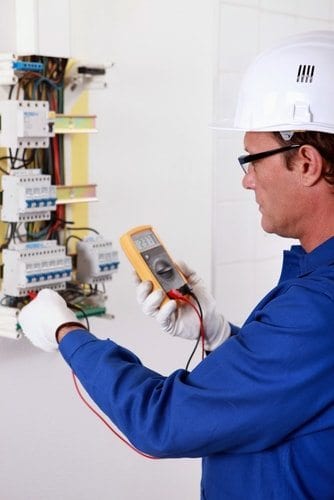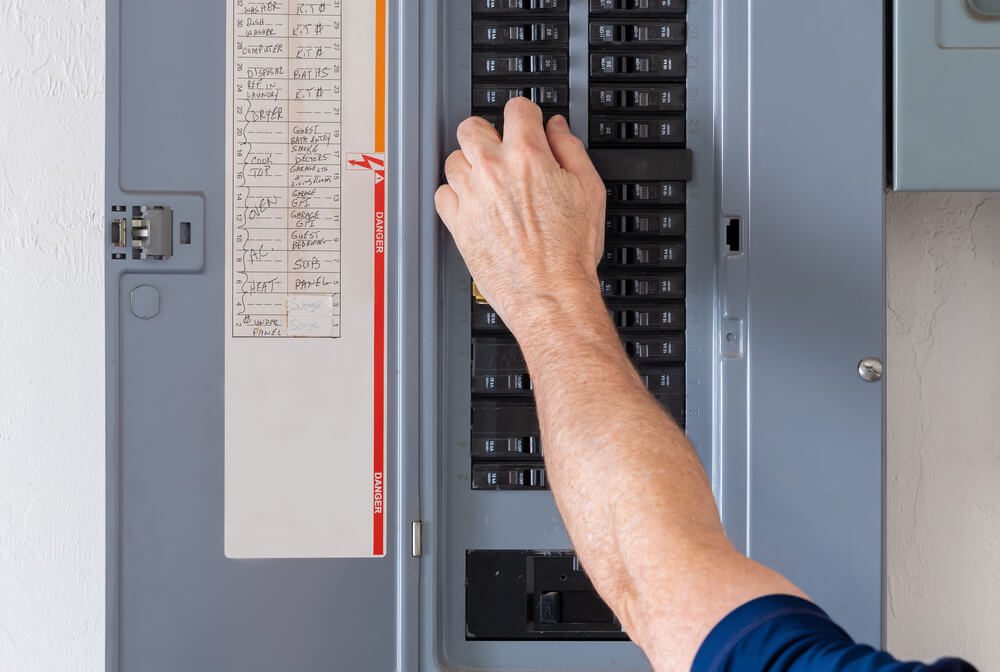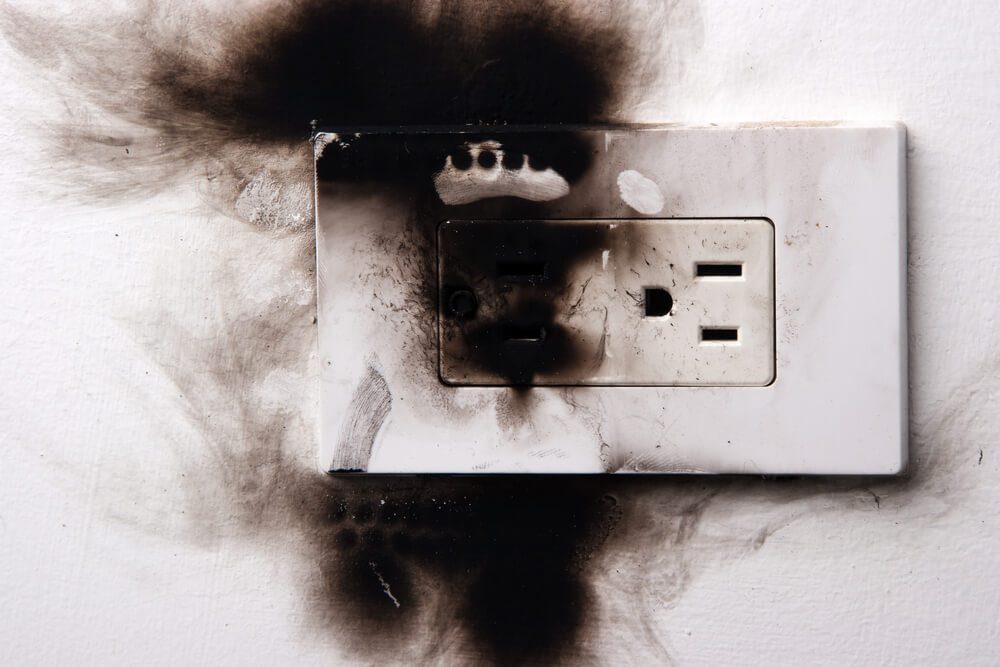Blog
6 Common Signs of an Electrical System Malfunction

Is your home telling you that you need expert electrical services? Electrical components such as wiring, switches, and power panels incur wear and tear over time, just like plumbing or any other system in your home.
At some point, electrical malfunctions result and require professional electricians. According to the U.S. Fire Administration, 24,200 electrical malfunction fires occurred in 2021.
When it comes to electrical equipment, safety is crucial. Have your entire electrical system inspected by a professional, licensed electrician every ten years. Additionally, watch for signs of electrical system malfunction.
6 Signs of Electrical Problems

Here are some telltale electrical issues symptoms that need to be checked out by a licensed professional electrician:
1. Circuit Breaker Issues
Circuit breakers in your main power panel that require frequent resetting are an electrical malfunction red flag. There are usually three primary causes of frequent circuit resetting:
- Too many devices are drawing excessive amps
- Wear in the circuit breakers themselves
- Serious electrical short that might cause a fire
No matter the cause, it’s always best to have a professional electrician diagnose the problem.
2. Flickering or Dimming Lights
If you notice light fixtures dimming intermittently, this is a sign that the electrical current is unstable. It tends to happen when a major appliance, like an air conditioner, turns on or off.
Large appliances like air conditioners, dryers, and furnaces should have dedicated circuits. If you notice dimming when one of your home appliances turns on, consider having an electrician put in a dedicated circuit. For temporary large power draws, like a vacuum, a brief dimming of the lights is expected and normal.
If you find that your lights dim often or flicker, your old wiring may be insufficient to handle new loads or your main electrical panel may not meet household demands anymore. Different electrical wire (gauge) sizes can only support so much electrical current at a time. Older homes with older wiring may not be able to support the electrical needs of a modern lifestyle.
Additionally, older electrical panels may not be able to support enough electrical amperage. If your electrical panel cannot support more than 100 amps, it may be overloaded. You should consider upgrading your circuit panel.
3. Hot Wall Outlets or Fixtures
Components of your electrical system, like outlets, should remain cool to the touch. It is possible that they may become slightly warm to the touch, but they should never feel hot. If any feel hot, unplug whatever is plugged in and try it at a different outlet. If that outlet gets hot, you know the device is to blame. If only the original outlet gets hot, have a qualified professional electrician check it out.
It could be a sign of physical deterioration, such as bad grounding, or it could be an indication of an overload elsewhere on that circuit. If any device is plugged in, unplug it and see if the outlet cools. Leave it unplugged, and be sure to mention it to the electrician.
4. Burning Smell or Fishy Odor

Since wiring is concealed within walls, unexplained odors of hot wiring or burning smells should be an immediate cause to contact an electrician. Turn off the related circuit breaker, and unplug all devices from that outlet. Do not use it until an electrician can look at it.
Turn off circuit breakers at the main electrical panel and call the fire department if you notice smoke, fire, or blackened hardware.
5. Sparking
Sparking is never a good sign. If your outlet or light switch is sparking, turn off the outlet with the circuit breaker, and do not use it until an electrician can look at it.
Don’t try to flip the circuit yourself; instead, call your electrical utility company. They can turn off your power remotely while a licensed electrician comes to inspect your electrical panel.
6. Buzzing, Fizzing, Popping, or Zapping Sounds
Similar to sparking, but more auditory, buzzing, fizzing, or zapping sounds indicate that your electricity is arcing. Electricity should flow smoothly and quietly between connections.
These noises can be caused by loose prongs, outlets, fraying wires, and more, which may cause the electricity to jump, producing a buzzing sound.
If the sound originates from an outlet, stop using it and turn off the circuit until an electrician can look at it.
Bonus Sign: Do you have a switch or electrical outlet that often zaps you? That isn’t standard; an electrician should repair or replace it.
Outdated Electrical Components
While these are not necessarily malfunctions, older, outdated components can be a potential electrical fire hazard. They are proven to have caused fires in the past, and should not be overlooked. If you have outdated electrical components, they should be replaced with modern, safety-tested ones.
To protect your home from electrical malfunctions, have a licensed electrician replace the following outdated components:
- Two-Pronged Outlets: Two-pronged outlets do not have a proper grounding wire. A few random two-prong outlets that are only used for lights are probably okay, but if you have a house full of two-prong outlets, get them replaced. Using extension cords long-term is an electrical safety hazard.
- No GFI Outlets: GFI or GFCI outlets should be used in the kitchen, bathroom, outside, and anywhere else that gets damp or wet, such as the garage or basement. These special outlets are designed to trip when water is introduced and are credited with a large drop in electrical fires. The National Electrical Code requires GFCI outlets in all kitchen receptacles for all homes in the United States. You can identify them by looking for the “Test” and “Reset” buttons on them.
- Knob and Tube Wiring in the Attic: Knob and tube wiring are very outdated components and are usually installed in the attic. It can be an electrical hazard, especially if it’s covered with insulation. If you want to increase the insulation to improve energy efficiency, ask for help from a professional beforehand to ensure your safety.
- Aluminum Wiring: Aluminum wiring can be dangerous because connections loosen over time, generating heat. This type of wiring was used in homes built in the 1960s and early 1970s. An electrician may be able to increase its safety through upgrades that don’t involve a complete wiring replacement.
- Insufficient Outlets: The latest wiring code requires one receptacle every 12 feet to help eliminate cord hazards. Pulling too much power from one power strip can overload the wiring, causing it to overheat and potentially cause a fire.
For professional electrical services to diagnose signs of a system malfunction in Cincinnati, contact Apollo Home.



